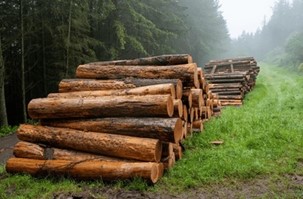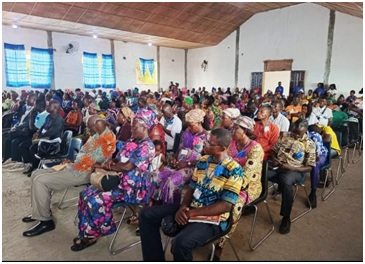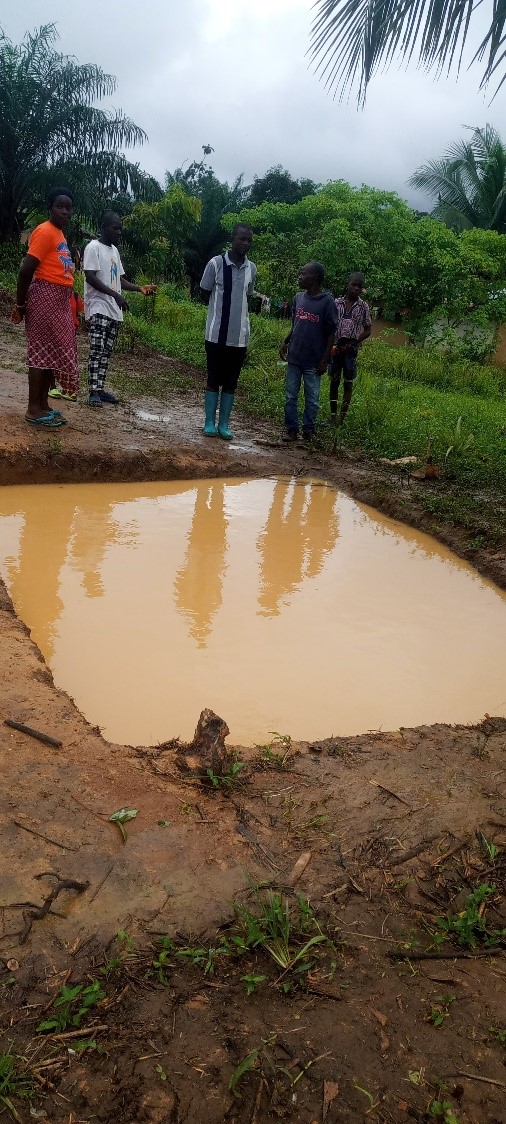Independent investigation conducted by a team of investigative reporters has revealed that the recent court order from the 2nd Judicial Circuit Court in Grand Bassa County instructing the management of the Forestry Development Authority (FDA) to allow Renaissance Group Inc. export illegal harvested logs that were confiscated by FDA is in violation of the voluntary partnership agreement between Liberia and the European Union (EU).
The Government of Liberia has emphasized its commitment to the sustainable management of its natural resources, which includes improving its forest governance and ensuring the legal production of timber and timber products. To this extent, and to ensure that only legally produced timber and derived timber products are exported from Liberia, the government entered into agreement with European Union.
In 2013 Liberia entered the Forest Law Enforcement, Governance and Trade (FLEGT) Voluntary Partnership Agreement (VPA) with the European Union (EU). This aims ultimately to ensure that only legally produced timber and timber products are exported from Liberia to the EU. Elements of this agreement include a timber chain of custody system that incorporates controls aimed at ensuring that timber harvesting is carried out in compliance with Liberia’s laws, and that revenues due to the government are paid before timber products are allowed to be exported. It also provides for regular checks by an independent auditor (IA) to ensure that the system is working as intended.
The Liberia-EU VPA provided for the development of Timber Legality Assurance System (TLAS) to provide the necessary assurances of the legality of Liberian timber. The TLAS is based on Liberian legal requirements pertaining to timber operators and the legal production of timber and timber products in Liberia.
The report of the independent panel’s forensic investigation into irregularities in operations of Timber Sales Contract A2, Grand Bassa County, established that there was sufficient evidence to conclude that illegal logging was done on a significant scale by the Renaissance Group Inc. in 2018 in an area adjacent to the TSC A2 Resource Area.
In accordance with the provisions of the 2006 National Forest Reform Law, an appropriate fine of US$105,000 was imposed on Renaissance Group Inc. by FDA for the offense of illegal logging.
Renaissance Group Inc. CEO, Aaron George, reportedly admitted to the panel that his company illegally harvested from outside of the TSC A2 Resource Area. He further told the independent panel’s forensic investigative team that he was not aware of the demarcation between the Resource Area and the surrounding forest landscape. He informed the panel that, even though FDA disapproved his request to engage in roadside felling, his company still cut logs along the roadside, which is in complete violation of the law. He also confirmed the payment of the two separate fines, in the amounts of US$5,000 and US$100,000 for the violation.
The report also states that the citizens of Doe Clan, Grand Bassa County, are to be told in no uncertain terms that their forest is not a concession area and is not an authorized community forest and, therefore, cannot be used for logging activities by any logging company.
The Renaissance Group Inc. sued FDA at the 2nd Judiciary Circuit Court for confiscating its illegally harvested logs, and pleaded with the court to restore its rights to operate in Grand Bassa County. Renaissance Group Inc. won the case against FDA, and the court has since instructed FDA to set up a joint team comprising of FDA, the Ministry of Justice, Renaissance Group Inc. and the court sheriff to visit the log field and do an appraisal and inventory on the confiscated logs.
According to investigation, the refusal of FDA not to implement the court ruling by allowing Renaissance Group Inc. to export the confiscated logs and grant them rights to operate in the TSC A2 area is in the best interest of the country. The investigation however revealed that FDA’s action not to implement the court’s ruling is in compliance with the Voluntary Partnership Agreement (VPA) entered into with the European Union (EU). This partnership agreement, according to investigation, places Liberia on par with international best standard in the management of the country’s forest, and can be used as a platform to further enhance cooperation in promoting forest governance.







